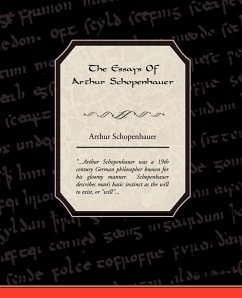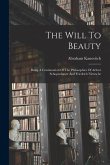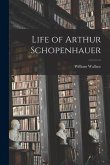Arthur Schopenhauer was a 19th century German philosopher known for his gloomy manner. Schopenhauer describes man's basic instinct as the will to exist, or "will". Schopenhauer is known for his analysis of human motivation and the human condition. He argued that emotional, physical, and sexual desires can never be truly fulfilled. Schopenhauer favored a lifestyle of negating human desires, similar to the teachings of Buddhism. The Table of Contents includes Human nature -- Government -- Free-will and fatalism -- Character -- Moral instinct - and Ethical reflections.
Hinweis: Dieser Artikel kann nur an eine deutsche Lieferadresse ausgeliefert werden.
Hinweis: Dieser Artikel kann nur an eine deutsche Lieferadresse ausgeliefert werden.








